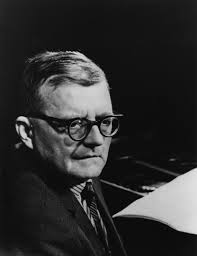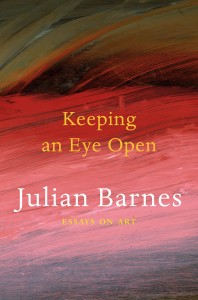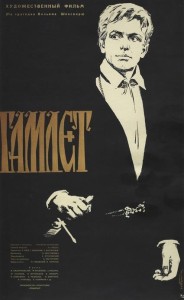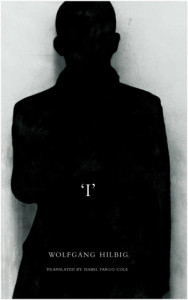Censorship, state and formation of literature

A Stasi official observing the interrogation of the lover of an East German playwright whose loyalty to the state is questioned, in Florian Henckel von Donnersmarck’s film The Lives of Others, 2006
An extract from the New York Review of Books review by Timothy Garton Ash of Censors at Work: How States Shaped Literature by Robert Darnton” ( 23 October 2014)
I have only once met a censor on active duty. In the spring of 1989, my friends at the newly founded Polish opposition newspaper Gazeta Wyborcza let me take a cartoon up to the in-house censor at the printing house of the main Communist Party daily, on whose weary old presses Solidarity’s organ for the dismantlement of communism was now being produced. I knocked on the door, only to find a bored-looking woman in a floral dress, with a cigarette on her lip and a glass of tea at hand. She slowly scanned the cartoon and the article to which it related, as if to demonstrate that she could read, and then stamped her approval on the back of the cartoon.
My taskmistress showed few obvious signs of being an intellectual, but one of the leitmotifs of Robert Darnton’s new book is how intellectually sophisticated censors have often been. Drawing on original archival research, he offers three fine-grained, ethnographic (his word) studies of censors at work: in Bourbon France, British India, and Communist East Germany. In eighteenth-century France, the censors were not just writers manqués; many were writers themselves. They included men like F.-A. Paradis de Moncrif, a playwright, poet, and member of the Académie française. To be listed as a Censeur du Roi in the Almanach royal was a badge of honor. These royal censors initialed every page of a manuscript as they perused it, making helpful suggestions along the way, like a publisher’s editor. Their reports often read like literary reviews. One of them, M. Secousse, solicitously approved an anthology of legal texts that he himself had edited—thus giving a whole new meaning to the term “self-censorship.”
In British India, the censors—not formally so called—were scholars and gentlemen, either British members of the elite Indian Civil Service (the “heaven born”) or their learned Indian colleagues. Harinath De, a candidate for the post of imperial librarian in Calcutta in 1906,
had mastered Latin, Greek, German, French, Italian, Spanish, Sanskrit, Pali, Arabic, Persian, Urdu, Hindi, Bengali, Oriya, Marathi and Guzerati, along with some Provençal, Portuguese, Romanian, Dutch, Danish, Anglo-Saxon, Old and Middle High German, and a smattering of Hebrew, Turkish and Chinese. He got the job.
Besides being a librarian, that job involved contributing summary reviews to an extraordinary printed catalog of every book published in the Raj from 1868 onward. It included more than 200,000 titles by 1905. Although given to describing anything with erotic content, including the hanky-panky of Hindu gods, as “filthy,” these literary monitors were often highly appreciative of the works under review, especially when the authors showed some virtuosity of style and depth of scholarship.
In the summer of 1990, Darnton, the lifelong historian of books and censorship, had the thrill of finally meeting two real-life censors. In East Berlin, the capital of the soon-to-be-history German Democratic Republic, he found Frau Horn and Herr Wesener, both holders of advanced degrees in German literature, eager to explain how they had struggled to defend their writers against oppressive, narrow-minded higher-ups in the Party, including an apparent dragon woman called Ursula Ragwitz. The censors even justified the already defunct Berlin Wall on the grounds that it had preserved the GDR as a Leseland, a land of readers and reading. Darnton then plunges with gusto into the Communist Party archives, to discover “how literature was managed at the highest levels of the GDR.”
He gives instances of harsh repression from all three places and times. Thus, an eighteenth-century chapter of English PEN could have taken up the case of Marie-Madeleine Bonafon, a princess’s chambermaid, who was walled up, first in the Bastille and then in a convent, for a total of thirteen and a half years. Her crime? To have written Tanastès, a book about the king’s love life, thinly disguised as a fairy tale. In 1759, major works of the Enlightenment, including Voltaire’s poem on natural religion and Diderot’s Pensées philosophiques, were “lacerated and burned by the public hangman at the foot of the great staircase of the Parlement” in Paris.
In British India, civilized tolerance of native literature turned to oppression in the early years of the twentieth century, as Indian nationalist protests grew following the partition of Bengal. A wandering minstrel called Mukanda Lal Das was sentenced to three years’ “rigorous imprisonment” for singing his subversive “White Rat Song,” with lyrics that come out in the official British translation like this:
Do you know, Deputy Babu, now your head is under the boots of the Feringhees, that they have ruined your caste and honor and carried away your riches cleverly?
In East Germany, Walter Janka suffered five years of solitary confinement for being too much involved with György Lukacs in 1956.
Yet such outright persecution is not Darnton’s main theme. As his subtitle suggests, what really interests him is “how states shaped literature.” They have generally done so, he argues, through processes of complex negotiation. In eighteenth-century France, censors made suggestions on grounds of taste and literary form; they also ensured that no well-placed aristocrats received unwelcome attention and that compliments to the king were sufficiently euphuistic. Different levels of authorization were available, from the full royal privilege to a “tacit permission.”
In East Germany, elaborate quadrilles were danced by censors, high-level apparatchiks, editors, and, not least, writers. The celebrated novelist Christa Wolf had sufficient clout to insist that a very exceptional ellipsis in square brackets be printed at seven points in her 1983 novel Kassandra, indicating censored passages. This of course sent readers scurrying to the West German edition, which visitors smuggled into the country. Having found the offending words, they typed them up on paper slips and gave these to friends for insertion at the correct place. Among its scattering of striking illustrations, Censors at Work reproduces one such ellipsis on the East German printed page and corresponding typewritten slip.
Klaus Höpcke, the deputy minister for publishing and the book trade (a state position, and therefore subordinated to higher Party authorities), seems to have spent almost as much time in the 1980s fending off the Party leaders above him as he did curbing the writers below. He received an official Party reprimand for allowing Volker Braun’s Hinze-Kunze-Roman, the scabrous story of an apparatchik and his chauffeur, to be published, albeit in a carefully “negotiated” form. Finally, in a flash of late defiance, Deputy Minister Höpcke even supported an East German PEN resolution protesting against the arrest of one Václav Havel in Czechoslovakia in the spring of 1989.
Some celebrated writers do not emerge trailing clouds of glory from the cold-eyed files of censorship. Voltaire, that legendary champion of free speech, apparently tried to get the royal censors to suppress the works of his enemies. It was the censor-in-chief who, while he might not have agreed with what Voltaire’s enemies said, defended their right to say it.
The office of the East German Politburo member responsible for culture, Kurt Hager, “kept long lists of writers who sent in requests for visas, cars, better living conditions, and intervention to get their children into universities.” A plea by the writer Volker Braun to be allowed a subscription to the leading West German liberal weekly Die Zeit went all the way up to Hager, with a supportive letter from the deputy minister, who argued that this would provide Braun with materials for a novel satirizing capitalism. In the course of tough negotiations with senior cultural apparatchiks in the mid-1970s, Braun is even recorded as saying that Hager was “a kind of idol for him.” Can we credit him with irony? Perhaps. Writers who have never faced such pressures should not be too quick to judge. And yet one feels a distinct spasm of disgust.
17 March 2017





